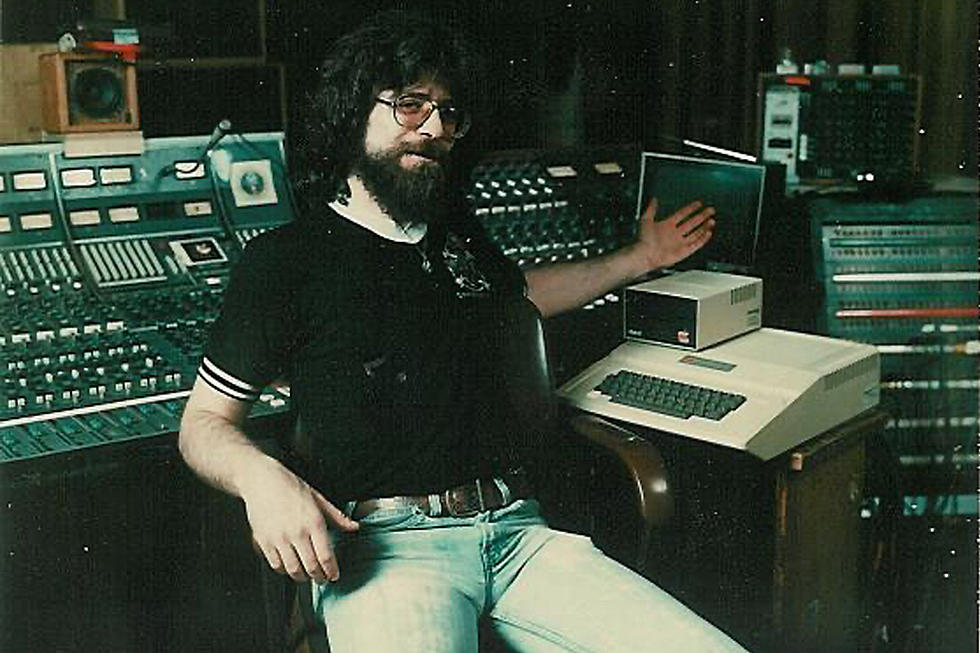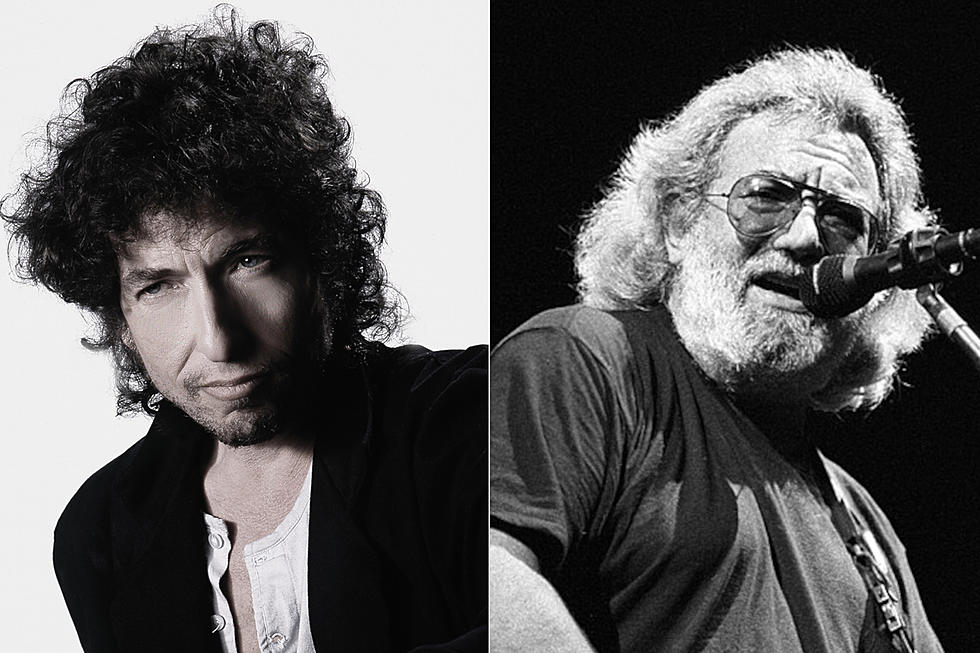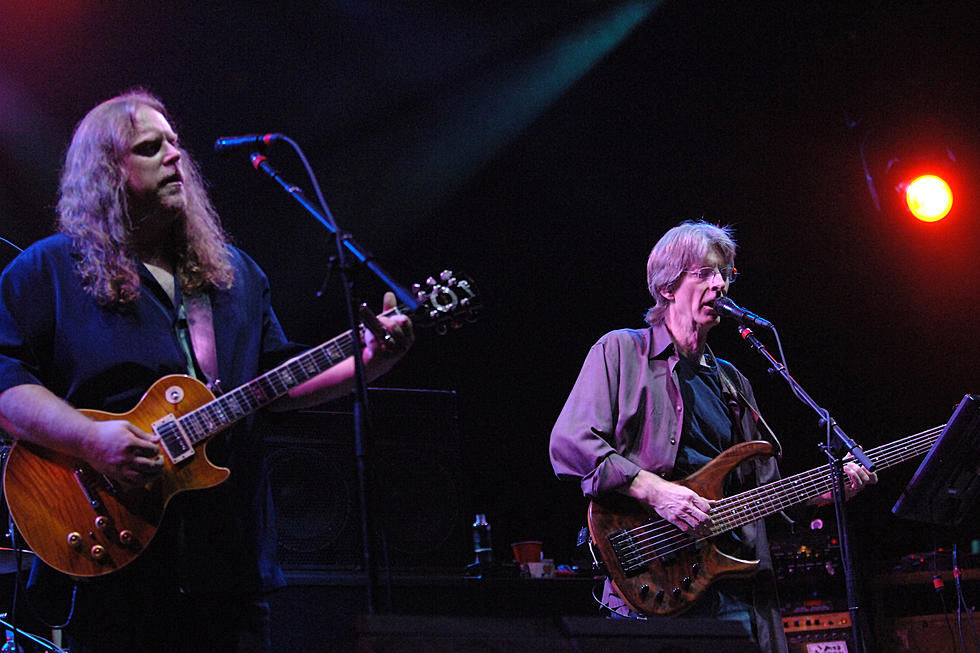
Top 10 Phil Lesh Grateful Dead Songs
What a long, strange trip it's been for Phil Lesh. The legendary bassist -- who will be performing as part of the 2013 Mountain Jam Festival -- started out on violin as a child, later moving to trumpet. His early interest in avant-garde classical music and free jazz provided much of the framework for his subsequent career as one of the most innovative bass players in rock music. Ironically, Lesh did not even play bass when he first met Jerry Garcia and formed a band with him called the Warlocks, which became the Grateful Dead, and Lesh served as their bass player from inception until they disbanded after Garcia's death in 1995. Not a particularly prolific writer, he nevertheless penned some of the Dead's most enduring songs, and his inimitable bass playing was an important element of many of those he didn't write -- as you'll see in our list of the Top 10 Phil Lesh Songs.
- 10
'Passenger'
From: 'Terrapin Station' (1977)Written with Peter Monk, Lesh's 'Passenger' is short and sweet at just under three minutes, but it's a compelling track nonetheless. It's definitely a departure from much of the quasi-symphonic, almost progressive rock sound of 'Terrapin Station,' with a tight, funky arrangement that makes it one of the Top 10 Phil Lesh Songs. The lyrics are fairly typical of Lesh's co-written efforts, with a somewhat nebulous quality: "Passenger, don't you hear me / Destination seen unclearly / What is a man deep down inside / What a raging beast with nothing to hide."
- 9
'Shakedown Street'
From: 'Shakedown Street' (1978)The title track from a much-maligned Dead record that saw the band trying to produce a hit for Arista Records by pursuing a glossy disco (?!) sound, this song by Garcia and Robert Hunter nonetheless has a compelling groove that is anchored by Lesh's supple bass playing. An example of how Lesh refused to merely underpin the songs by playing root notes, instead providing both rhythmic and contrapuntal lines, weaving in and out of the other instruments. The studio track features some great bass playing, but it was really subsequent live jams on the song that provided Lesh with a bass showcase.
- 8
'Cumberland Blues'
From: 'Workingman's Dead' (1970)Co-written by Garcia, Hunter and Lesh, 'Cumberland Blues' is a rollicking, good-time track that incorporates bluegrass forms into a structured track that's almost rockabilly. The track features some sweet, controlled guitar solos and multi-layered vocal harmonies, with banjos chiming in later on the track. Far from the long, drawn-out live jams the Dead are best known for, 'Cumberland Blues' features a tight, relatively sparse arrangement.
- 7
'St. Stephen'
From: 'Aoxomoxoa' (1969)Another co-write between Garcia, Hunter and Lesh, 'St. Stephen' references the story of the 1st Century Saint Stephen, who was stoned to death. The studio version appeared on the Dead's third studio album 'Aoxomoxoa,' while a live version was released later the same year on the album 'Live/Dead.' The studio track features layered harmonies over a bluesy electric track, with an interesting segue that's almost like a nursery rhyme midway through the song. That's part of what makes it one of the Top 10 Phil Lesh Songs.
- 6
'Fire on the Mountain'
From: 'Shakedown Street' (1978)Say what you will about the disco influence of 'Shakedown Street,' but it sure resulted in some great bass tracks from Lesh. 'Fire on the Mountain' is essentially a three-minute pop song, with shimmering guitar effects that wouldn't have been out of place on a track by Player or Hall & Oates. But Lesh's bass line supplies plenty of groove, especially in later live versions, where the Dead paired the song with 'Scarlet Begonias' called 'Scarlet Fire.'
- 5
'Pride of Cucamonga'
From: 'From the Mars Hotel' (1974)Lesh was not a frequent lead singer in the Grateful Dead. But he not only co-wrote this countrified track from 1974, he also took the mic for a rare feature vocal. Framed by piano and pedal steel, 'Pride of Cucamonga' tells the tale of a man on the run who's done some time. An underground fan favorite, 'Pride of Cucamonga' is also notable for the fact that the Dead never performed it live.
- 4
'Truckin''
From: 'American Beauty' (1970)'Truckin'' is another rarity in the Dead canon in that it was written by all four of the writers in the group. The song draws from the band's life on the road, using it as a metaphor for dealing with life's changes. It is one of the Dead's most recognizable tracks and one of few true hit singles the band placed in the charts. The Library of Congress recognized the song as a national treasure in 1997, so it certainly belongs in our list of the Top 10 Phil Lesh Songs.
- 3
'New Potato Caboose'
From: 'Anthem of the Sun' (1968)The Grateful Dead were known mostly for their trippy live shows that featured intricate instrumental jams, but their studio albums tended to feature shorter tracks with much tighter arrangements. 'New Potato Caboose' is one notable exception. The 8 1/2 minute track features long instrumental passages that seem specifically written to create a hallucinogenic mood, with bizarre lyrics to go with it: "When the windows all are broken and your love's become a toothless crone / When the voices of the storm sound like a crowd / Winter morning breaks, you're all alone."
- 2
'Unbroken Chain'
From: 'From the Mars Hotel' (1974)Lesh must have been in a singing mood during the recording of 'From the Mars Hotel.' He not only co-wrote and sang 'Pride of Cucamonga,' he also co-wrote and sang 'Unbroken Chain.' Musically the song is pure Dead, with trebly lead guitars and a loose, meandering feel. The lyrics are more puzzling Grateful Dead quasi-drug rambling: "November and more as I wait for the score / They're telling me forgiveness is the key to every door / A slow winter day, a night like forever / Sink like a stone, float like a feather." This is another track that the Dead rarely performed live.
- 1
'Box of Rain'
From: 'American Beauty' (1970)Co-written by Lesh and Hunter, 'Box of Rain' was inspired by the impending death of Lesh's father, who was battling cancer. Hunter wrote the words to the bassist's music, and Lesh reportedly practiced the song on his way to the nursing home where his father lay dying. The music draws from folk and country for a track that has become a Dead fan favorite. The song bears the interesting distinction of being the final tune the Dead played live before the death of Jerry Garcia; they pulled it out as their final encore at Chicago's Soldier Field on July 9, 1995.
More From Ultimate Classic Rock









